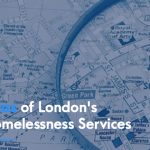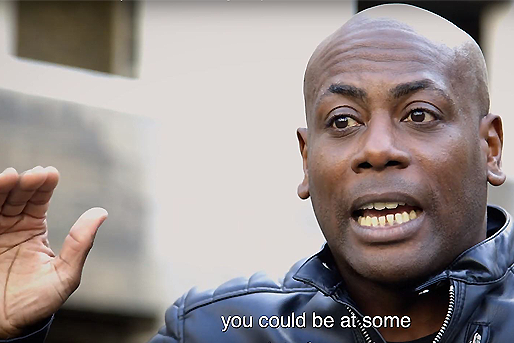London Housing Foundation gives travel bursaries for graduates of the London South Bank University post graduate certificate in Homelessness and Housing that we sponsor. These allow staff from the sector to see how the housing crisis and rough sleeping is tackled in different cultures. We asked Pia Hansen, Get Involved Manager at Evolve Housing, how she used the grant.
Where did you decide to go and why?
I went to Trondheim in Norway. They are leaders in using a Housing First approach to tackle homelessness. They have seen a significant reduction in homelessness since the beginning of the Housing First programme in 2013, which was driven from government level and embedded into national policy. In 2012 there was a count of 350 homeless people in Trondheim. By 2016 this number had dropped to 146 people. I wanted to see what they did and what we could learn from it.
Who did you meet?

We were kindly hosted by Håvard Spjøtvold, their housing first worker who arranged the following visited over 3 days:
- Housing First- visited the team and a home visit to one of the housing First customers.
- Ute Team- floating support service for adults with substance misuse support needs.
- MO Senter- Reception and follow up centre providing drug intervention support.
- Gryta- Community based low threshold substance misuse service.
- Napha- Norwegian National Centre for Mental Health Care
- Salvation Army- Night shelter hosting up to 20 overnight stays.
What were your initial impressions?
The most striking thing was the longevity with which they viewed their work. The Housing First worker viewed each new client as a 5 year journey and was able to give them time to engage at their own pace. It struck me how much we expect from people within a very short period of time here.
Also, the services are incredibly well connected and they work very well in partnership. For example, one of the housing workers was with a client who was in arrears. He was immediately able to ring the person at the local authority dealing with this and it was sorted in one call. Everyone realises that it is better to keep people in accommodation; that eviction and re housing is far more expensive. Whereas here there would be inevitable discussions about who is paying, in Norway there appears to be a more coordinated approach.
What else is different?
They invest in their housing stock – so there is choice and options – and in their staff. All the staff we met were highly skilled and very well trained. Salaries increase annually based on experience and education levels so staff retention wasn’t an issue.
The other thing that was really striking was how many of the ‘clients’ we spoke to who stated as a matter of fact that they have a right to housing.
What can we learn from them?
Putting the resources issue to one side, we have to be able to replicate the super smooth way they collaborate. We all talk about it but somehow we just must be able to work better together, seamlessly, to benefit the client. We could also learn from giving homeless people more time to settle and to work with them to support change when they are ready to do so.
Has it changed the way you work?
Yes, especially in my previous role as quality manager. And understanding the broader context and seeing a different approach is very refreshing and challenging.
What questions remain?
It was interesting that they do not seem to have embraced co-production or peer support to the same extent that we have. Napha said they were now looking into developing the peer worker roles moving forward. It may be a question of being better resourced?
For more information about LHF travel bursaries, go to https://lhfoundation.wpengine.com/visits-and-exchanges/ or contact Cassandra.karanjia@lhf.org.uk You can also see a film about the Trondheim services at https://vimeo.com/141660050




